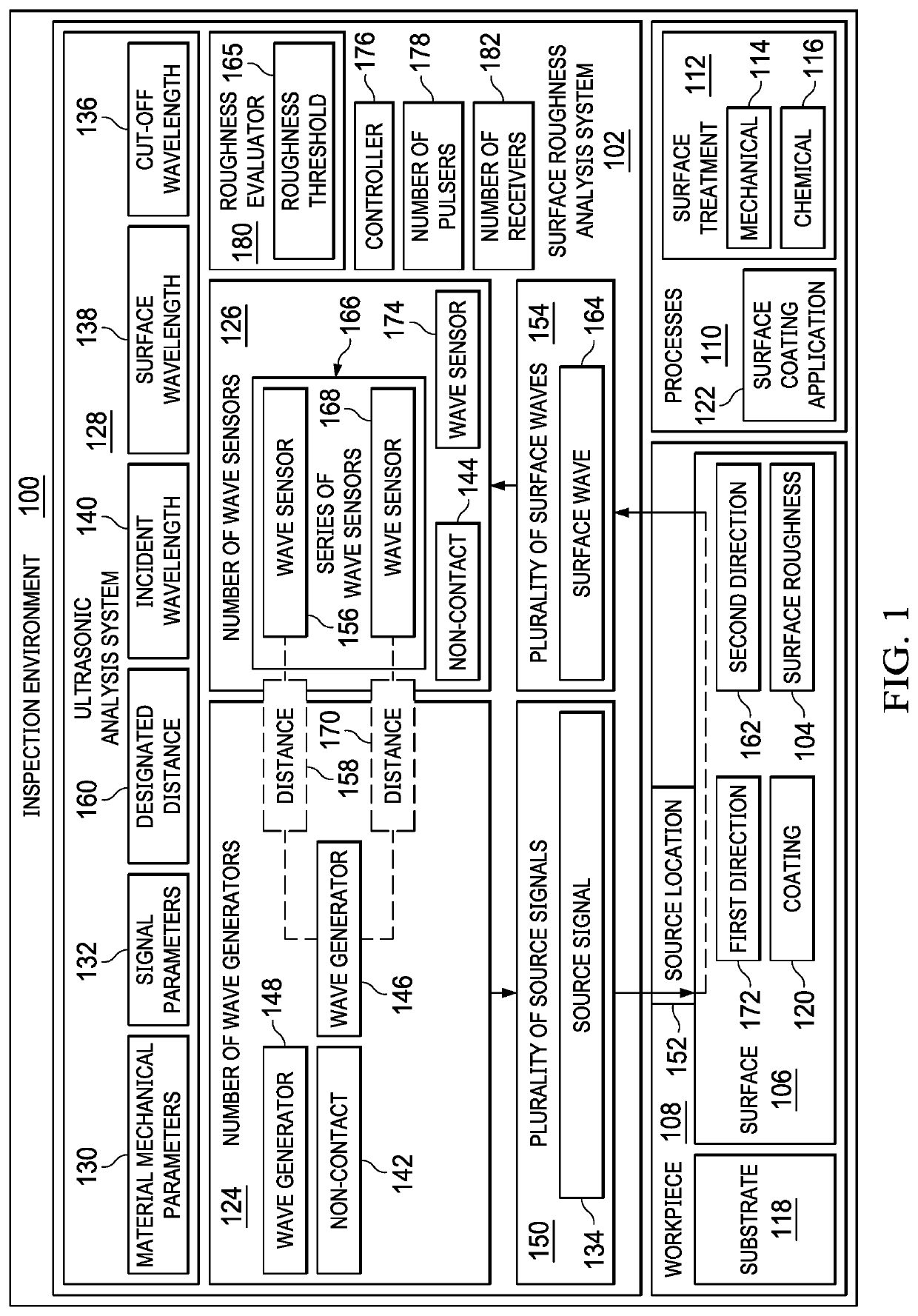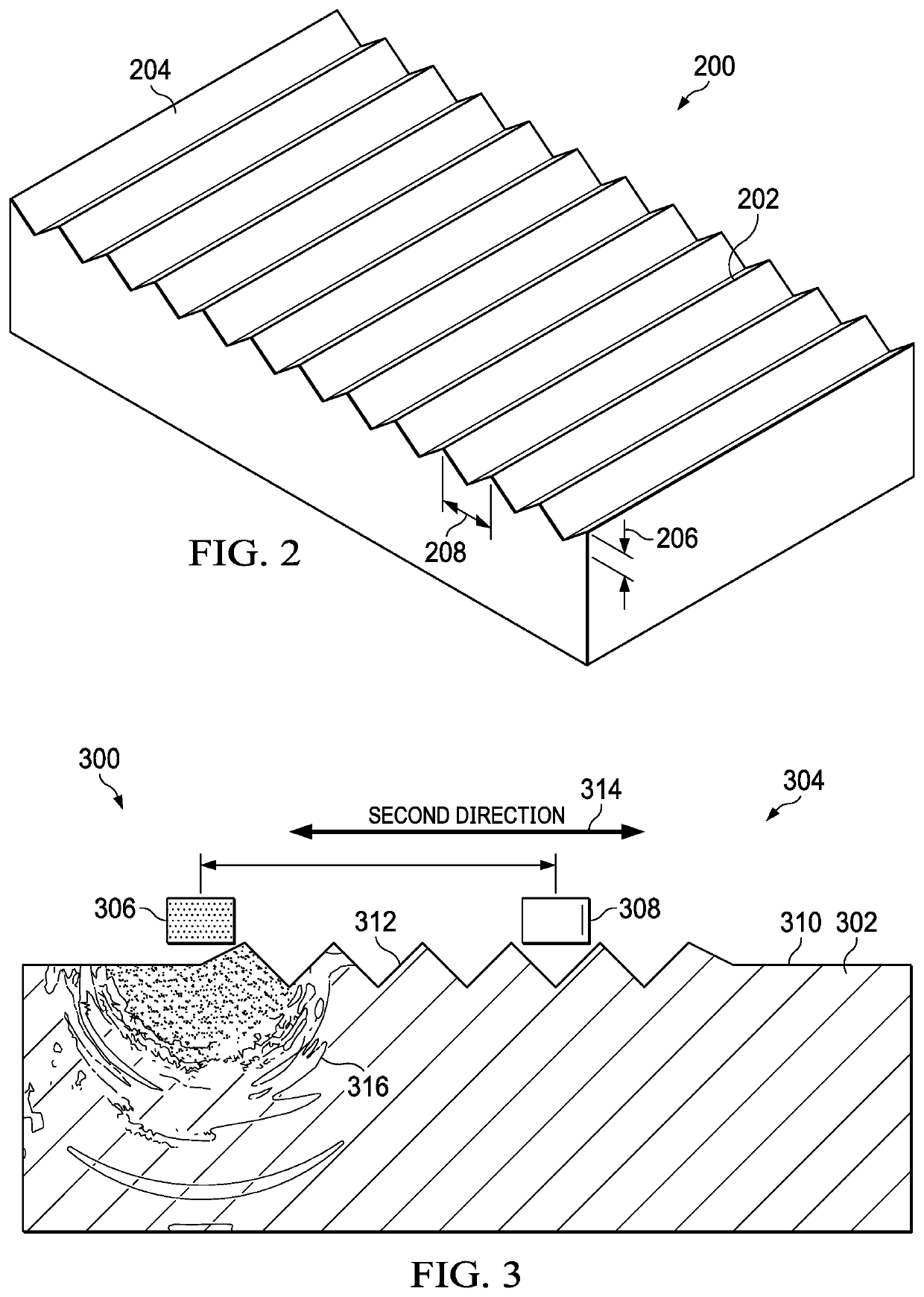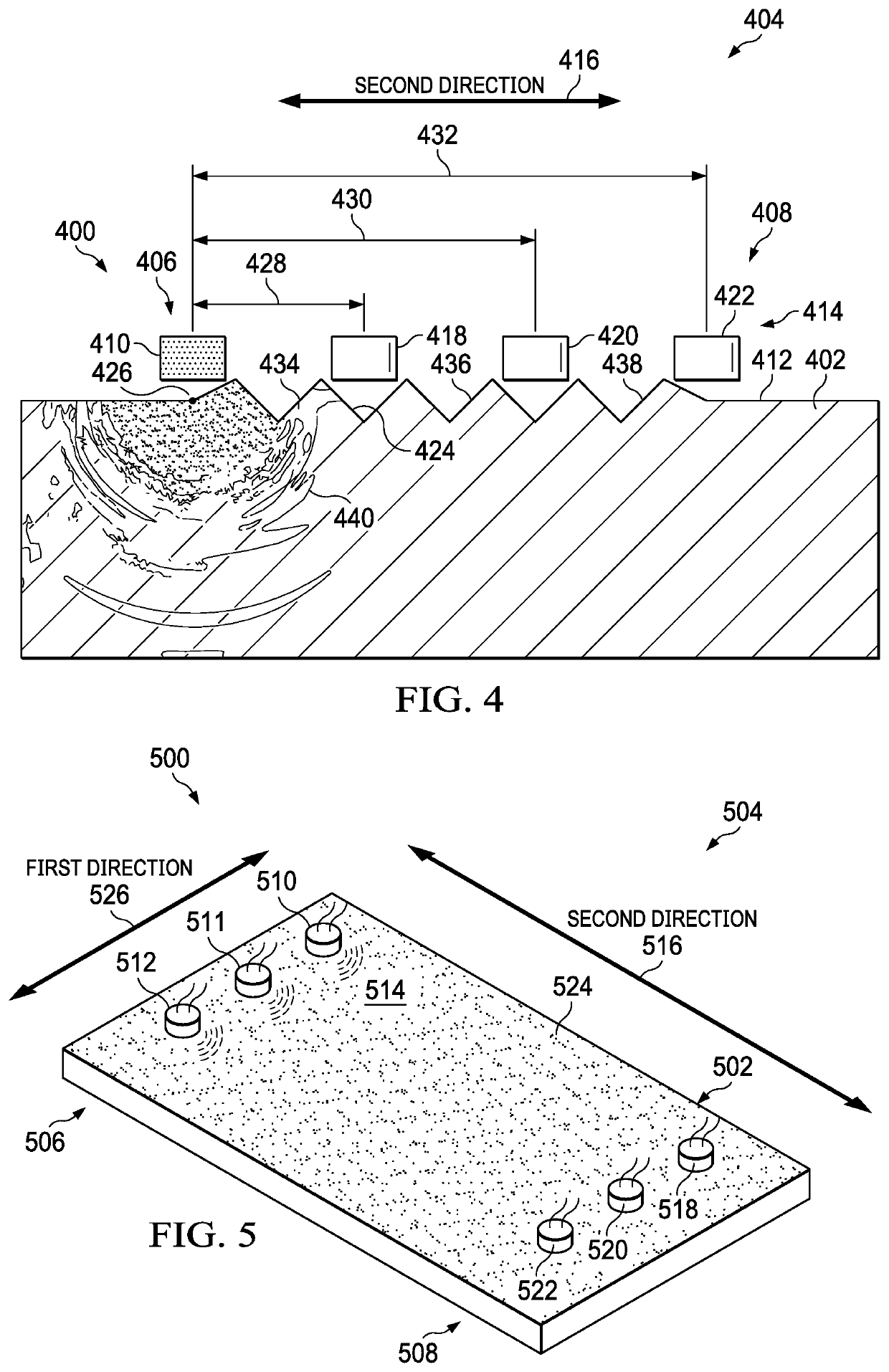Surface Roughness Analysis System and Methods of Analyzing Surface Roughness of a Workpiece
a workpiece and surface roughness technology, applied in the field of non-destructive inspection, can solve the problems of limited visual inspection accuracy, unsatisfactory surface roughness, and often undesirable surface roughness
- Summary
- Abstract
- Description
- Claims
- Application Information
AI Technical Summary
Benefits of technology
Problems solved by technology
Method used
Image
Examples
Embodiment Construction
[0027]The illustrative examples recognize and take into account one or more different considerations. The illustrative examples recognize and take into account that roughness is often a predictor for performance of mechanical components in both subtractive and additive manufacturing processes. The illustrative examples recognize and take into account that irregularities on a surface finish may form nucleation sites for cracks and corrosion. The illustrative examples recognize and take into account that fatigue is a surface phenomenon and high surface roughness can increase crack growth initiation possibility.
[0028]The illustrative examples recognize and take into account that roughness also plays a role in material interaction with the environment. For example, roughness affects corrosion.
[0029]The illustrative examples recognize and take into account that surface roughness can be a challenge in manufacturing of three-dimensionally printed parts. The illustrative examples recognize ...
PUM
 Login to View More
Login to View More Abstract
Description
Claims
Application Information
 Login to View More
Login to View More - R&D
- Intellectual Property
- Life Sciences
- Materials
- Tech Scout
- Unparalleled Data Quality
- Higher Quality Content
- 60% Fewer Hallucinations
Browse by: Latest US Patents, China's latest patents, Technical Efficacy Thesaurus, Application Domain, Technology Topic, Popular Technical Reports.
© 2025 PatSnap. All rights reserved.Legal|Privacy policy|Modern Slavery Act Transparency Statement|Sitemap|About US| Contact US: help@patsnap.com



